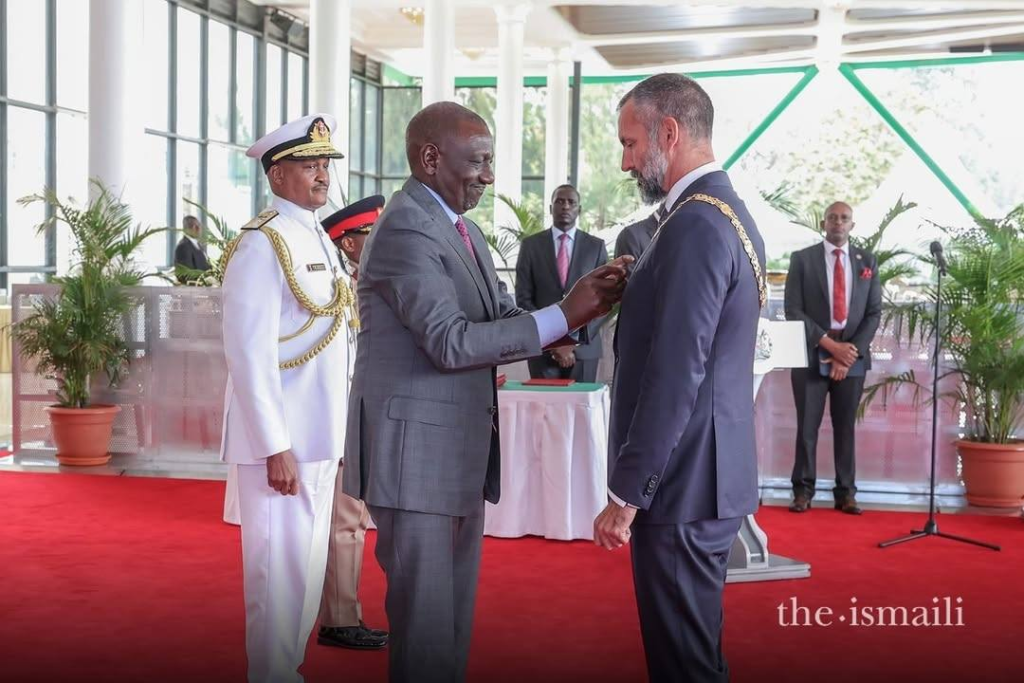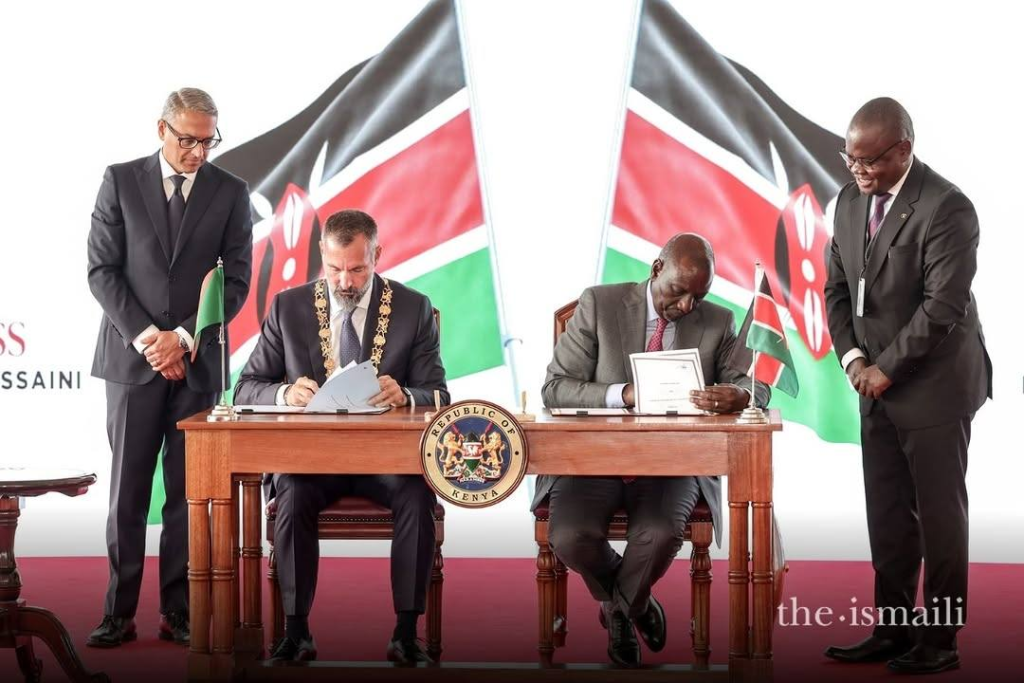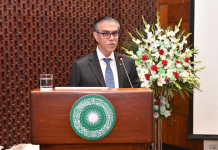Nairobi, Aug 26 – In a landmark ceremony at State House Nairobi, Mawlana Hazar Imam, His Highness the Aga Khan, was conferred Kenya’s highest civilian honour, the Chief of the Order of the Golden Heart, by President William Ruto — a rare and distinguished recognition of outstanding service to the nation.

The prestigious award, typically reserved for Heads of State and exceptional global leaders, reflects over a century of transformative partnership between Kenya and the Aga Khan Development Network (AKDN), one of the world’s largest private development agencies.
“I accept this decoration as a recognition of the past, but also as a pledge for the future,” Hazar Imam stated. “A pledge to continue walking side by side with the people of Kenya in the pursuit of a more inclusive, equitable and hopeful tomorrow.”
Celebrating a Legacy of Development and Cooperation
The State House event marked more than a ceremonial gesture — it reaffirmed Kenya’s deep-rooted ties with the Ismaili Imamat and the AKDN, which has helped shape Kenya’s health, education, economic, and cultural landscape for generations.

President Ruto emphasized this legacy:
“This moment is both historic and symbolic. It affirms Kenya’s deep appreciation of the enduring legacy of the Ismaili Imamat, whose service to humanity has long been a pillar of our national journey.”
He praised AKDN’s continued investment in Kenya’s future — from establishing world-class hospitals and schools, to driving sustainable economic growth through ventures in media, insurance, hospitality, and initiatives that preserve culture and the environment.
New Agreements to Advance Shared Development Goals
During the visit, two key agreements were signed:
- A reaffirmation of the enduring partnership between the Ismaili Imamat and the Government of Kenya.
- A Memorandum of Understanding to deepen cooperation in vital areas such as climate change, environmental conservation, urban rehabilitation, and cultural heritage.
These accords align with Kenya’s Vision 2030 and President Ruto’s strategic focus on inclusive growth, grassroots economic stimulation, and sustainable development.
“Our goal is to work alongside the Government as you tackle the emerging challenges of climate change, urban regeneration and delivery of public services,” said Hazar Imam. “We will continue to mobilise not only our own institutional capacity and resources, but also those of our international partners and investors, for Kenya’s benefit.”
A Century of Impact, A Future of Shared Purpose
The Aga Khan Development Network and the Ismaili community have played a central role in Kenya’s development for over 100 years. Today, AKDN agencies reach more than 27 million people across the country — from underserved rural areas to growing urban centres.

From the Aga Khan University and Aga Khan Hospital to Nation Media Group and projects in coastal conservation and early childhood education, AKDN’s footprint reflects a commitment to building human capacity and promoting pluralism.
President Ruto hosted a formal luncheon in honour of Hazar Imam, joined by leaders of the Jamat and AKDN, celebrating the past and charting a path for deeper cooperation.
“For decades, the Aga Khan Development Network has been a trusted ally in Kenya’s development,” the President affirmed. “This is a partnership built not just on shared interests, but on shared values.”
Looking Ahead
On August 27, Hazar Imam will grant didar (spiritual visit) to the Ismaili Jamat of Kenya and regional communities from Botswana, Burundi, Eswatini, Namibia, Rwanda, and South Africa — a moment of spiritual significance for the community and a reflection of the deep bond between the Ismaili Imamat and East Africa.
As Kenya and AKDN step into a new chapter of collaboration, the focus remains clear: improving lives, strengthening institutions, and building a resilient, inclusive, and sustainable future — together.
BY: The Times Union








